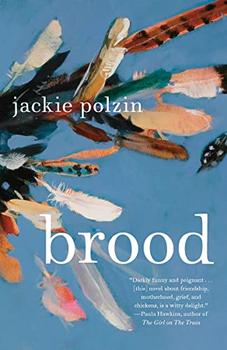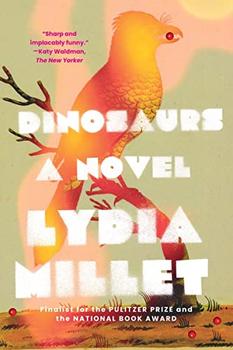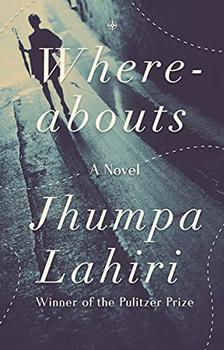Summary | Excerpt | Reviews | Beyond the book | Read-Alikes | Genres & Themes | Author Bio

Brood: a "hatch of young birds" or a "human family, children." To brood: to "meditate on." These definitions from the Concise Oxford Dictionary indicate just how perfect the title of Jackie Polzin's first novel is. It is literally about keeping chickens, but it is also a wryly reflective first-person narrative from a woman who hoped for children but couldn't have them. While feeling broody, she's brooding over a variety of everyday fears and concerns.
Four years ago, the narrator and her husband, Percy, an economist, acquired four chickens: Darkness, Gam Gam, Gloria and Miss Hennepin County. The couple lives on the edge of a Minnesota city, in a slightly sketchy neighborhood, yet their backyard chicken coop offers a taste of the pastoral. The narrator is realistic about the threats these birds face, starting with the bitter cold winters. She also seeks to defend them against illness, raccoons and birds of prey. The summer brings the opposite worry of extreme heat, as well as a tornado and a bird flu scare.
This unnamed narrator is Everywoman and no one at the same time. As in recent autofiction by Rachel Cusk and Sigrid Nunez, readers will find observations of other people (and animals), a record of their behavior and words. Facts about the narrator herself are few and far between, though it is possible to gradually piece together a backstory for her. Her mother lives nearby; she and Percy married late; she cleans houses. Like Stephanie Land does in the memoir Maid, she attributes personalities to the houses she works in and marks out her life by experiences she had while cleaning them. At one point she reveals, with no fanfare, that she miscarried four months into pregnancy in the bathroom of one of those houses.
Simply wanting to become a mother wasn't sufficient, she discovered: "I think I would have been a good mother, especially the older I get. Perhaps this is why the idea of being a mother is difficult to let go of." Meanwhile, her best friend Helen, a realtor, has a one-year-old son, Johnson, and is soon pregnant again with a girl. The narrator doesn't actively begrudge Helen her children, but Helen's seemingly effortless maternity is a counterpoint to her own perceived failure.
The narrator would indeed be a good mother, we feel, because of how tenderly she cares for the chickens' daily needs. On freezing nights, she turns on a space heater in the shed, and rushes out in the mornings to check that they're all right. She recalls the time a year ago when Gam Gam was "egg bound" and they had to submerge her rump in warm water to ease the egg out. When she realizes that she's been feeding the chickens the equivalent of junk food, she is mortified. She also takes the kind of delight in them that parents take in their children: "We cannot help but watch them, being as they are an endless source of entertainment and worry." Even after four years, she's still making new observations of the chickens, such as that one of them appears to resist sleep when feeling the need to keep watch.
To start with, I was uneasy that the novel might be presenting chicken-keeping as a poor substitute for having children — as if, by extension, pets are childless people's futile attempt to fill a hole. It was one of the things I was most curious to ask Polzin about (see my interview with her). I was relieved to hear her affirm that there is something special about the relationship between people and animals. I think she would agree with me that the loyalty and compassion we receive from and feel for our pets are virtues worth cultivating, no matter in what context, and that there are many ways of putting parental instincts to good use.
There is a bittersweet tone to this short work. The ending — despite the prospect of a new beginning in it — struck me as somewhat bleak. I suspect readers will have a range of responses. It's not for those who need a lot of plot, or who don't like the feeling that information is being withheld; events have surface meaning, and could also be interpreted allegorically, but ultimately, it surprised me to what extent the book really is about chickens. Early on, I felt impatient to move on and learn more about the narrator. But that's not the kind of novel this is; it's no tell-all. Rather, it's a low-key, genuine portrait of life in the in-between stages and how it can be affected by fate or by other people's decisions.
A quote from Annie Dillard's The Writing Life came to mind: "How we spend our days is how we spend our lives." Even if the narrator's life hasn't turned out as she expected, there are worse ways to spend a life than in wistful contemplation of the quotidian realities of marriage, neighborhood life and friendship.
![]() This review was originally published in The BookBrowse Review in March 2021, and has been updated for the
August 2022 edition.
Click here to go to this issue.
This review was originally published in The BookBrowse Review in March 2021, and has been updated for the
August 2022 edition.
Click here to go to this issue.

If you liked Brood, try these:

by Lydia Millet
Published 2023
Over twelve novels and two collections Lydia Millet has emerged as a major American novelist. Hailed as "a writer without limits" (Karen Russell) and "a stone-cold genius" (Jenny Offill), Millet makes fiction that vividly evokes the ties between people and other animals and the crisis of extinction.

by Jhumpa Lahiri
Published 2022
A marvelous new novel from the Pulitzer Prize winning author of The Lowland and Interpreter of Maladies--her first in nearly a decade.
Harvard is the storehouse of knowledge because the freshmen bring so much in and the graduates take so little out.
Click Here to find out who said this, as well as discovering other famous literary quotes!
Your guide toexceptional books
BookBrowse seeks out and recommends the best in contemporary fiction and nonfiction—books that not only engage and entertain but also deepen our understanding of ourselves and the world around us.